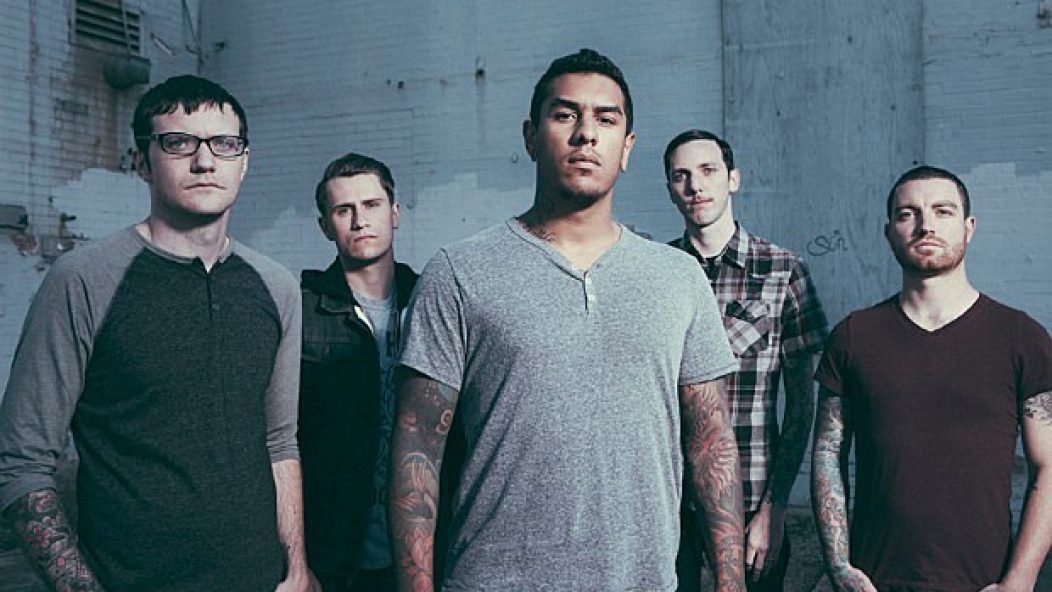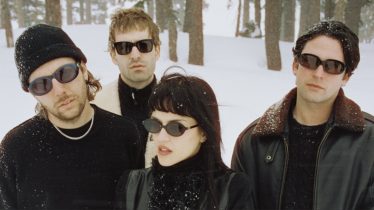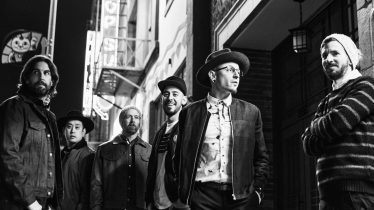
For Today interview: "We need people to step up and take personal responsibility"
Mattie Montgomery knew this For Today album would be different from the others. At first, he set out to write the type of lyrics he had always written: words drawn from the theological and intellectual side of his Christian faith. But during the writing process for what would become the title track on the band's second album for Razor & Tie, Fight The Silence, Montgomery watched a video about human trafficking that brought him to tears and realigned the entire record.
The singer tossed out the lyrics he was working on and started over. It was time to use the band's platform like never before.
Now, For Today are raising awareness (and money) to fight human trafficking. Together with the A21 Campaign, the band are speaking to the audience they've built through nearly a decade of touring and transcendent performances that blend moshpit and pulpit with a tent revival-style fervor.
Of course, while For Today's new album may be called Fight The Silence, the band members themselves have been noticeably quiet for nearly a year.
In January of 2013, Mike Reynolds dragged For Today into the country's gay marriage debate with a series of tweets in which the then-guitarist admonished Christians to “separate” themselves from the “progressive liberal agenda” of the government and declared there to be “no such thing as a gay Christian.” As explosive reactions unfurled on social media from all sides, Reynolds left the band. (The For Today camp said this had already been in motion.) Montgomery invited anyone who felt hurt, confused or enraged by the Tweets to speak with him directly, giving out his phone number on YouTube.
Lead guitarist/clean vocalist Ryan Leitru, bassist Brandon Leitru, drummer David Puckett (who joined after band co-founder David Morrison relocated to South America to do missionary work), new guitarist Sam Penner (ex-In The Midst Of Lions) and Montgomery returned to producer Will Putney (Miss May I, Suicide Silence) to craft the new album. In this exclusive Q&A with AP, Montgomery breaks For Today's nearly year-long press silence.
He speaks openly about his newfound lyrical vulnerability, the relationship between poverty and crime, what fans can do to better the world, punk rock, why many modern bands refuse to take a stand on anything, the aftermath of Reynolds’ tweets, his views on the legalization of gay marriage–and the Backstreet Boys.
Interview By: Ryan J. Downey
In a statement released with the new record, you talked about being moved to tears by a video about human trafficking. Fight The Silence is already raising awareness about the issue, and the album has only been out for a week. What can fans do once they've been informed and inspired?
MATTIE MONTGOMERY: That really was the question I was faced with. I became aware of human trafficking and the injustice of it, and then I thought, “Well, what can I do?” Maybe if I was part of some paramilitary group of mercenaries, maybe we could go bust into brothels and set people free. But I don't have the connections and resources necessary to do that. [Laughs.] What hit me and the reason I wrote “Fight The Silence” is I realized I may not have the guns, the expertise or the knowledge necessary to take that sort of action, but I can use what I do have. I have a platform. I have a voice.
That's what I think we need more of: for people to stop taking a step back from problems they see in the world and just pointing a finger at it from a distance. We need people to step up and take personal responsibility for the world they live in. That's what separates the boys from the men. Boys don't have any responsibilities: They look at the world and complain, whine and fuss. But what men do in contrast to what boys do is they step up and take personal responsibility for the world around them.
That doesn't mean you need to become a senator. Use what you have, even if all you have is a Facebook page and a group of friends. You guys can get together, like For Today did, and raise money for the A21 Campaign, who do have the resources to take action. >>>
What sort of reactions are you getting online and in person about Fight The Silence, both musically and thematically?
People seem really into it. I went into it with a different mindset this time. I thought, “I want to bare my heart on this album.” I wrote about issues that were really close to me. I wrote “Fatherless” about growing up without a dad. I wrote “Pariah” as a firsthand account of a young man who was martyred for his faith in Christ in the Middle East recently. That stuff was difficult to write, emotionally, and kind of draining. But it's been really cool seeing that the same sort of mindset I was in while I was writing it is hitting people while they're listening to it.
You have kids getting really fired up and excited about things. You have kids dealing with really serious wounds and emotional issues they've held onto their entire life. You have people even taking it a step further and deciding to do something outside of themselves. That's even better when the way you think about other people changes. We wrote 'A Call to Arms' about poverty. Those types of songs are inspiring people to get out of their house, out of their bubble, to go start touching other people's lives and hopefully affecting a real change for them.
You have kids hearing about the issue of human trafficking and their hearts are breaking for it, just like mine did when I wrote the song. You have kids who grew up without fathers hearing someone address an issue that's very real for them. Letting them know there is some hope, even just in knowing you are not alone. As a kid who grew up without a dad, that is a tragically hard thing to get through your head. Because you feel so alone after your dad is taken from you.
It's been really cool to see.
This is your second album since leaving the overtly Christian-based Facedown Records. You've toured with a ton of bands outside of that realm, too.
There has been an effort by the powers that be in this music industry–media outlets, record labels, management companies–to divide bands into Christian and non-Christian groups, and I think that sucks. We've made it a point for years to go on tour with non-Christian bands.
For example, the guys in Stray From The Path, who are out on tour with us right now. They are some of the best friends we've ever had in a band. We've toured with those guys a bunch of times. I have [Christian] kids come up to me all the time asking, “How is it touring with bands like that?” I'm like: “It's fine! Who told you that I have to be afraid of bands who don't agree with me?” I don't know how people are getting it into their heads, but I feel like non-Christian kids feel like they're not welcome at a For Today show. Some Christian kids often come to For Today shows and are upset that there are non-Christian bands and people there.
It's completely ridiculous. I don't know who drew a line in the sand and said you're only allowed to hang out with a certain type of people.
It's interesting how “Christian music” is the only genre classified by content vs. sound. Particularly in the '90s, Christian metal and hardcore bands often dealt with this perception where they weren't “Christian enough” for the Christian crowd but “too Christian” for everybody else.
It takes work. A lot of Christians thought there was no way this type of music could be a good thing. But now it seems like more Christian people have come around to it. It used to be only non-Christian kids at our shows! Now there are so many youth group kids coming out, which I appreciate. I'm thankful for them. But they seem like they're afraid of atheists or non-believers. It's like, man, you really don't have to be! [Laughs.] If your faith can be shaken because you're in the same room as someone who disagrees with you, I'd question whether your faith was real to begin with.
Tell me more about “A Call to Arms.” It seems like poverty is at the root of a lot of the issues the album covers.
This seems like a “duh” thing, but I never realized the depth and the seriousness of poverty until I was working on the lyrics for that song. I started thinking about how the vast majority of violence in the world is a direct result of poverty. It comes from a place of desperation. If we could meet someone's need, then we wouldn't have to worry about that person being violently opposed to us or to anyone else. They wouldn't have to take advantage of other people to survive if we could help them survive. I wrote “A Call To Arms” based around that idea.
You want to stop the violence? Put an end to poverty. That's what the song boils down to. When we live lives of luxury safely in our gated communities and ignore poor people, we think it's such a tragedy when they rob us or intimidate us or take advantage of us because they are trying to feed themselves or their family. The real tragedy is these people are being pushed aside and forgotten about to the point where they have to resort to crime to provide for themselves. >>>



